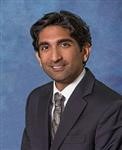Stroke Report
What is a Stroke?
A stroke is when the blood flow to the brain is reduced or blocked completely.
When this happens, part of the brain cannot get the oxygen and nutrients
that is needed, and so the brain cells die.
For more information “About Stroke” by the American Heart Association,
please click
HERE.
Stroke Mortality (Death)
What is this measure?
This measure shows whether Medicare patients died within 30 days of going to the hospital for Stroke. The death rates take into account how sick patients were before they were admitted to the hospital.
How does Kaweah Health perform?
 Better Than Benchmark
Better Than Benchmark
 Meets The Benchmark
Meets The Benchmark
 Worse Than Benchmark
Worse Than Benchmark
Jul '18 - Jun '21

Jul '20 - Jun '23

Jul '19 - Jun '22

Data Source: The Centers for Medicare and Medicaid Services (CMS) when
available or internal data
Benchmark Source: Rates are compared by the CMS to the U.S. national rate
for each Medicare patient type when available, or by internal national
benchmarking data
Why is it important?
This information is important because one way to tell if a hospital is doing a good job is to see if the death (mortality) rate for Stroke patients treated at that hospital is better than, the same as or worse than the U.S. national average. Death rates provide information about important aspects that affect patients’ outcomes. A focus on prevention, response to complications, emphasis on patient safety, and timeliness of care lowers mortality rates and improve patient outcomes.
Stroke Patient Hospital Readmission
What is this measure?
This readmission measure shows how often a Medicare patient returns to the hospital for an unplanned admission within 30 days of going home from the previous hospitalization. Patients may return to the same hospital or a different hospital. The readmission may be related the original Stroke or for a different health issue. The readmission rates take into account how sick patients were before they were admitted to the hospital.
How does Kaweah Health perform?
 Better Than Benchmark
Better Than Benchmark
 Meets The Benchmark
Meets The Benchmark
 Worse Than Benchmark
Worse Than Benchmark
Jul '14 - Jun '17

Jul '17 - Jun '19

Jul '15 - Jun '18

Jul '18 - Jun '21

Data Source: The Centers for Medicare and Medicaid Services (CMS) when
available or internal data
Benchmark Source: Rates are compared by the CMS to the U.S. national rate
for each Medicare patient type when available, or by internal national
benchmarking data
Why is it important?
This information is important because one way to tell if a hospital is doing a good job is to see if the readmission rate for Stroke patients is better than, the same as or worse than the U.S. national average. Readmission rates show how well the hospital is doing to prevent complications, provide clear discharge instructions, and aid in making easy transition home or to another setting.
What is Kaweah Health doing to continue to improve?
In 2017 Kaweah achieved Primary Stroke Center Certification from The Joint Commission (a federal accrediting non-profit organization) which recognizes hospitals that meet standards that support better outcomes for stroke patients. For more information about this certification program click HERE.
Kaweah Health is committed to providing the best care possible for our patients who have had a stroke or TIA (transient ischemic attack). To get more information on Kaweah’s Stroke Program and how we continuously improve care click HERE.
Patients are most at risk for readmission immediately following discharge from the hospital when they are often trying to follow directions for new medication, make lifestyle changes and manage follow-up appointments. Kaweah Health comprehensively prepares all patients before discharge and offers a variety of programs for patients who need extra support when going home.
Our medical center has a special pharmacy program called “meds to bed” that provide bedside delivery for discharge medications. Pharmacists can visit patient rooms for extra instruction about high-risk conditions and the drugs used for treatment.
Kaweah also offers stroke rehabilitation services. Click HERE for Kaweah locations and contact information for this service.
Frontline Perspective
 Kunal Sukhija, M.D., Emergency Medicine
Kunal Sukhija, M.D., Emergency Medicine
As a doctor in emergency medicine, I feel the stroke program is outstanding. The work that has gone into this program is critical for improving patient outcomes and a driver of patient satisfaction. We earn the patients trust by having a stroke team works together fluidly and promptly as one. I vividly remember a stroke patient’s family commenting how “well oiled” the care was they received.
How can patients and families support safety?
An important part of leaving the hospital is understanding how to manage your health conditions. This includes knowing about any medications, dietary restrictions, physical activity recommendations, and follow up care. Talk to your care team if you or a loved one has questions during the transition or after discharge.
For more information about Stroke visit the American Stroke Association HERE
Use the letters in “F.A.S.T.” to spot stroke signs and know when to call 9-1-1.
F - Face Drooping
A - Arm Weakness
S - Speech
T - Time to Call 9-1-1
